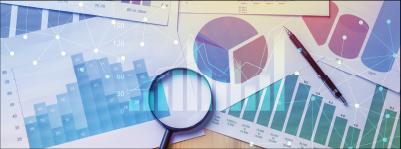For working professionals
For fresh graduates
- Study abroad
More
- Executive Doctor of Business Administration from SSBM
- Doctorate in Business Administration by Edgewood College
- Doctorate of Business Administration (DBA) from ESGCI, Paris
- Doctor of Business Administration From Golden Gate University
- Doctor of Business Administration from Rushford Business School, Switzerland
- Post Graduate Certificate in Data Science & AI (Executive)
- Gen AI Foundations Certificate Program from Microsoft
- Gen AI Mastery Certificate for Data Analysis
- Gen AI Mastery Certificate for Software Development
- Gen AI Mastery Certificate for Managerial Excellence
- Gen AI Mastery Certificate for Content Creation
- Post Graduate Certificate in Product Management from Duke CE
- Human Resource Analytics Course from IIM-K
- Directorship & Board Advisory Certification
- Gen AI Foundations Certificate Program from Microsoft
- CSM® Certification Training
- CSPO® Certification Training
- PMP® Certification Training
- SAFe® 6.0 Product Owner Product Manager (POPM) Certification
- Post Graduate Certificate in Product Management from Duke CE
- Professional Certificate Program in Cloud Computing and DevOps
- Python Programming Course
- Executive Post Graduate Programme in Software Dev. - Full Stack
- AWS Solutions Architect Training
- AWS Cloud Practitioner Essentials
- AWS Technical Essentials
- The U & AI GenAI Certificate Program from Microsoft
Economics Masterclass Online Courses
The study of economics can be applied in several sectors of the economy like business, health care, finance, engineering, government, and even households. Read more below
20(1)-70997669bd1a4ba2b565901e0eae2fa5%20(1)-de9c82be352d44bcb6a48fecf60b4465.jpeg&w=3840&q=75)
Economics Masterclass Course Overview
Best Management Courses
Programs from Top Universities
Our management certification courses cover a wide array of management principles and practices, making them some of the best management courses in India. Whether you are a new manager or an experienced professional looking to update your skills, our management degree courses offer valuable insights
Management (0)
Loading...
Management Course Instructors
Learn From The Best
Learn from industry leaders in our management courses, offering real-world insights and expertise. Be the best by learning from the best in the industry.
12
Instructors
Management Projects
Learn by Doing
Apply management theories to practical scenarios, enhancing your leadership skills. Be prepared to tackle real-world problems with our online management courses
2+
Projects
Success Stories
What Our Learners Have To Say
Management Videos
You Might Like To Watch
Learner Support and Services
How Will upGrad Supports You
upGrad Elevate: Virtual hiring drive giving you the opportunity to interview with upGrad's 300+ hiring partners
Job Opportunities Portal: Gain exclusive access to upGrad's Job Opportunities portal which has 100+ openings from upGrad's hiring partners at any given time
FAQs on Economics Masterclass Courses


upGrad Learner Support
Talk to our experts. We are available 7 days a week, 9 AM to 12 AM (midnight)
Indian Nationals
Foreign Nationals
Disclaimer
1.The above statistics depend on various factors and individual results may vary. Past performance is no guarantee of future results.
2.The student assumes full responsibility for all expenses associated with visas, travel, & related costs. upGrad does not provide any a.






















































